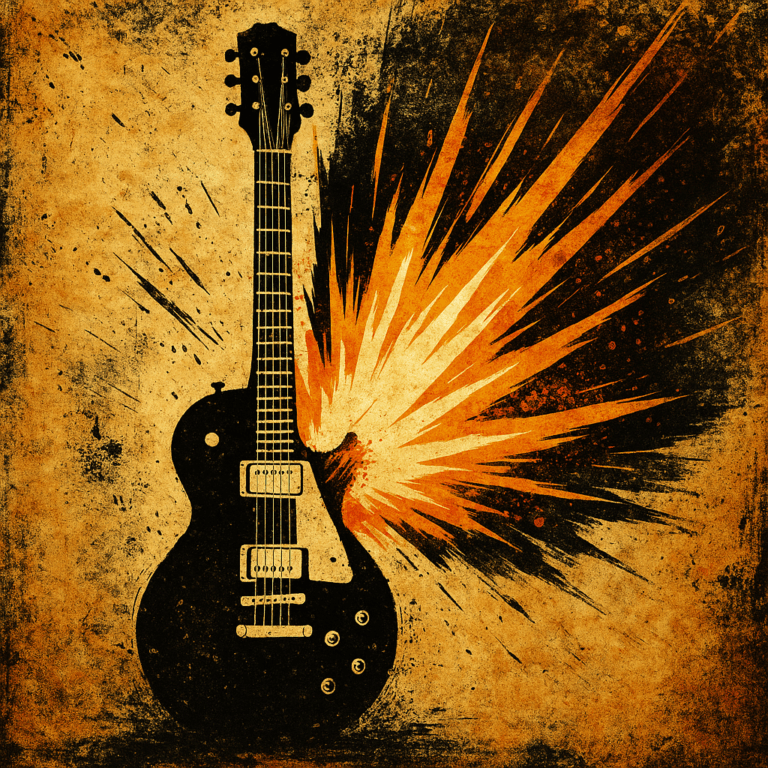Generation X was raised on riffs. When our bands hit the stage, they didn’t just play — they detonated. Guns N’ Roses swaggered like the Stones with gasoline in their veins. Metallica turned speed and fury into scripture. AC/DC hammered out riffs so primal they felt carved in stone. This was the era when the guitar solo ruled, when amps howled like jet engines, and when a live show could feel like a riot baptized in light.
These bands gave us what we craved: authenticity and intensity. Metallica’s thrash was all edge and discipline, like a blade sharpened on concrete. Each chorus was an anthem, each riff a dare. They weren’t just writing songs — they were building weapons for kids who didn’t know how else to fight.
And then the ground shifted, and from the cracks came a new sound: grunge. Nirvana, Pearl Jam, Soundgarden — music that wasn’t polished, wasn’t pretty, but felt like it was carved straight from the bone. It wasn’t about solos anymore; it was about raw emotion, shouted until your throat bled.
Before the internet, you didn’t scroll — you gathered. Around the radio, around MTV, around the stereo where a record spun from first track to last. We were the last ones to share music this way. Albums were pilgrimages. Singles were trophies caught on cassette tape after waiting all night by the speakers.
The music of Generation X endures because it wasn’t just entertainment. It was confession, rebellion, ritual. It captured the anxiety of standing with one foot in the analog past and the other in a digital future. It was the soundtrack of a generation that didn’t trust perfection — and didn’t want it.
But let’s not pretend Gen X was born in a vacuum. Before the thrift stores and broken homes, there was already a mansion of sound waiting for us. Built by the blues, gospel, and country of the American South. Robert Johnson at the crossroads. Mahalia Jackson shaking the rafters. Hank Williams crying under a neon sign. These weren’t songs for radios. They were survival.
Then came the first detonation. Chuck Berry’s grin and strut. Little Richard’s howl that could level a church. Elvis’s hips moving like blasphemy. Rock ’n’ roll was born messy, hungry, and loud.
And then — silence. February 1959. A small plane fell out of the Iowa sky and took Buddy Holly, Ritchie Valens, and The Big Bopper with it. The headlines called it a crash. The faithful called it The Day the Music Died. Rock had its first heartbreak.
But sound never really dies. It mutates. And in the echoes of that silence, seeds began to grow. Some sprouted in daylight, like the Beatles, dazzling the world with joy.
But others grew in the shadows.
<div style="display:flex; justify-content:space-between; margin-top:20px;">
<a href="https://yoursubstack.substack.com/p/previous-post-slug"
style="background:#333; color:#fff; padding:10px 20px; border-radius:4px; text-decoration:none;">
← Previous
</a>
<a href="https://yoursubstack.substack.com/p/next-post-slug"
style="background:#333; color:#fff; padding:10px 20px; border-radius:4px; text-decoration:none;">
Next →
</a>
</div>



Oh yeah baby!!!